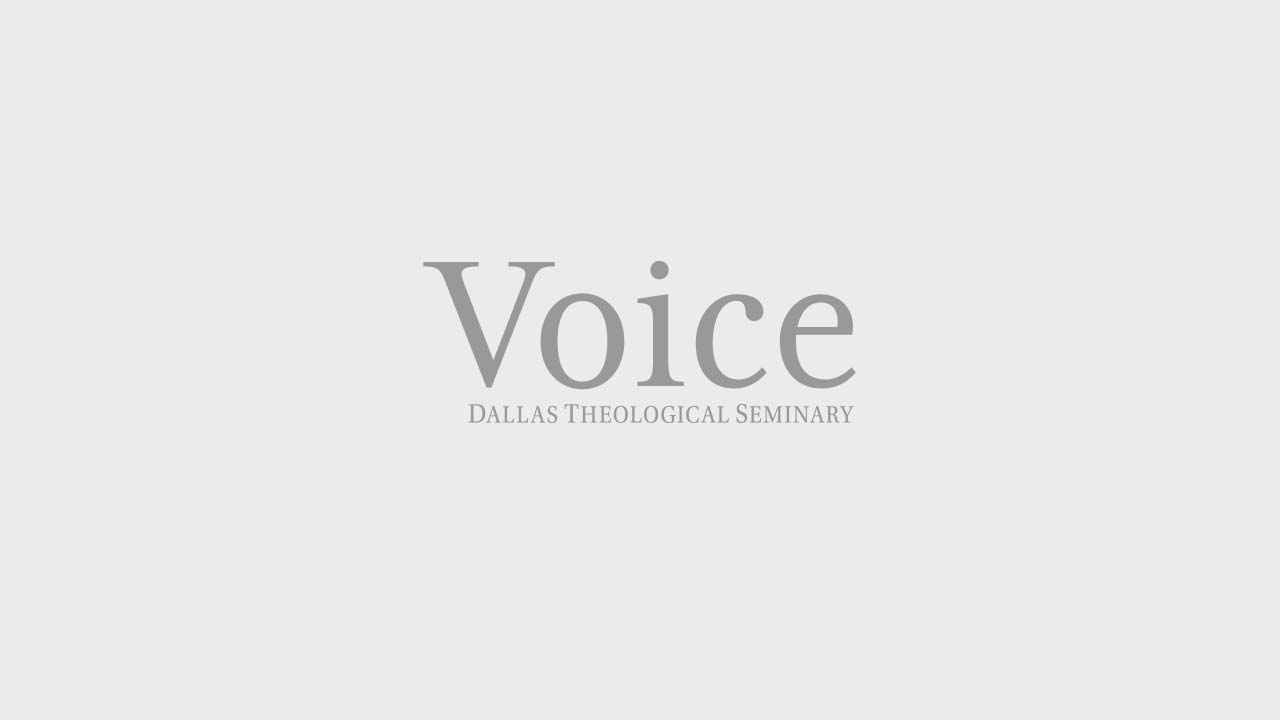God's Role in My Son's Autism

As a follower of Christ, I find my deepest questions are about God’s role in our son David’s autism. When our pastor asked if David’s condition could be due to unconfessed sin in our lives, the cause shifted from the physical to the spiritual. Anxious to find the cause in order to find the cure, we examined ourselves, just in case. What would we not do to get David healed? If only it were as simple as making confessions or promises or bargains with God. “But is this really what it is about?” I wondered. “Is David’s autism a punishment from God for past sin?”
If God wanted to deal with me according to my sin, I deserved far worse. But God does not deal with us as we deserve, because while we were helpless, sinners, and enemies of God, Christ died for us (Rom. 5:6–10). Jesus received what I deserved, and I received what I did not deserve: blood-bought forgiveness. While we do suffer the consequences for our sins, suffering isn’t always the result of sin. God has reasons for allowing trials that we cannot fathom in this life.
Searching for Answers
Another Christian friend asked us if David might be under a curse. She informed me that a generational curse could be passed down from ancestors who might have dedicated future descendants to idols or cursed them by their own sins. She pointed me to the second of the Ten Commandments: “You shall not bow down to them [idols] or worship them; for I, the Lord your God, am a jealous God, punishing the children for the sin of the parents to the third and fourth generation of those who hate me” (Exod. 20:5).
Her solution was to delve into the root of that sin, confess it on behalf of the ancestor, and receive forgiveness for it. Many people believe in generational curses and spend an enormous amount of energy on researching the possible sins of their ancestors. But, I thought, wouldn’t this fall into the same category as God’s giving David autism because of our sins, except that this was even more indirect and remote? As I pondered these possibilities, my eyes slipped down to the next verse: “but showing love to a thousand generations of those who love me and keep my commandments” (v. 6).
Would He who forgives my sins still hold ancestral sins against me? Salvation in one generation can change an entire lineage’s destiny from cursed to blessed. Our family already experienced this gracious reversal through our conversion to Christ.
When a famous healer who specialized in deliverance, or exorcism, came to town, people urged us to invite him to pray for David. Could David have a demon? If Satan was the cause, our son was under demonic dominion, requiring us to use every resource to deliver him. Parents in the Bible sought Jesus to deliver their children from demonic control. If we had the opportunity, we reasoned, shouldn’t we consider this as well? We invited this healer to pray for our son. Though nothing happened, the disconcerting thought that autism might be caused by a demon unearthed new questions.
Lessons from the Bible
At the heart of the problem lay the underlying questions: Who made this happen? Who is in charge? Was Satan the cause of this autism in my child, or was God responsible? These crucial questions determined the proper route to take in search of answers.
While demonic oppression is a reality in the world, if some other cause was behind our son’s autism, were we misdirecting our time and resources by trying to oppose Satan? What if God was behind it, and we were fighting God?
Job was a righteous man whom God gave Satan permission to strip of every blessing. Nevertheless, Job continually identified God as the one responsible for his suffering (Job 13:15). Never once did Job attribute responsibility to Satan, though Scripture clearly states that Job’s suffering came directly from Satan’s hands (2:3). But Job knew that God was in control of even Satan. And what Job believed is still true today. God is ultimately in control, so we focus on the Lord, fearing only Him (Luke 12:5).
In John 9, we read that Jesus’s disciples met a blind man, and asked Jesus, “Rabbi, who sinned, this man or his parents, that he would be born blind?”
“Jesus answered, ‘It was neither that this man sinned, nor his parents; but it was so that the works of God might be displayed in him’” (John 9:2–3, NASB).
I began to look for how God would display His work in our son. I stopped asking “Why?” because I knew the answer to “Who?” God, not the devil, was and is in charge. God did not look away when our child was born. He did not make a mistake, nor was He punishing us. Nothing comes into a believer’s life without first coming through the hands of our loving heavenly Father.
Parenting by Faith
God gave David to us, and He will also give us everything we need to love and care for him. Yearning to know the “whys” of David’s autism is an unproductive line of thinking. Why did I want God to give me the reasons? Would they bring me satisfaction or simply put me in a position to judge God? Could I really understand the workings of God? Job continually asked, “Why?” to which God only answered by asking, “Who?” (Job 38:2–11).
The sooner we recognize that God is ultimately and fully sovereign, the sooner we can trust Him in our problems. Paul reminds us, “And we know that in all things God works for the good of those who love him, who have been called according to his purpose” (Rom. 8:28).
By faith I believe that my child is not a burden, but a special gift from God. God is in control and has my best interests at heart. God did not give us this child to ruin our lives, for God promises to work all things for good. And though it is not always easy and we cannot always see “the good,” and though David is still autistic and mentally handicapped, yet by faith we trust that God is working all things for good. This is how David is not our tragedy, but God’s triumph—not a punishment, but God’s “good and perfect gift” (James 1:17). He’s still working.
After spending nearly two decades working as tentmakers in the Hong Kong business community, Miltinnie Yih and her husband of forty-two years (Lee, ThM, 1984) have an active outreach to Chinese scholars at Harvard University and MIT in Cambridge, Massachusetts.


